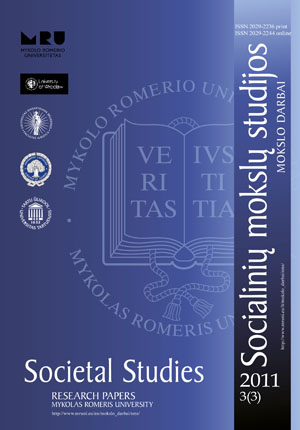Tiesos nustatymo problema šiuolaikiniame civiliniame procese
The Problem of the Establishment of Truth in the Course of Civil Process
Author(s): Žilvinas TerebeizaSubject(s): Social Sciences
Published by: Mykolas Romeris University
Keywords: civil process law; evidentiary process; the establishment of truth; objective truth; material truth
Summary/Abstract: The definition of the content of the principle of competition and the dispositive principle, their application limits, and the relation of court and its parties during the evidentiary process in positive law will determine whether the establishment of truth can be named as one of the aims of civil process. Since Lithuania regained its independence the objective of law makers to warrant operational efficiency of the process, to turn from investigative process to the equality of arms has been obvious and progressive. They have emphasized the significance of the autonomy of parties, the principles of the equality of arms and operational efficiency and refused to embrace the ideal of court role in the course of evidentiary process. The changed attitudes towards the role of parties and court in civil process determined different understanding of truth. This fact especially manifested itself after the reform of civil process implemented on the 1st of January in 2003, when a new Code of Civil Procedure of the Republic of Lithuania was carried out. The aims of civil process and new principles of civil process specified in the Code of Civil Procedure of the Republic of Lithuania encouraged the appearance of the discussion—what concept of truth should be the ground of civil process. Before the reform of civil process the goal was to establish objective truth, after the reform this attitude changed. Both legal doctrine and court practice started using the term “material truth” trying to justify it with a the help of the chosen concept of the social model of civil process. The author of this article tries to analyze the variety of concept of truth (material, objective, formal) given both in the legal doctrine of civil process and in the court practice making an attempt to answer the question whether the apportion of truth by the content which “is pulled” to one or another concept of civil process model does not distort the very meaning of truth and is justifiable? The article assesses the dispositive principle, the principles of competition and operational efficiency and the content of the sufficient evidence rule and tries to answer the question what impact the latter principles have on the establishment of truth and, if the effort to justify the goal at whatever risks - to establish a the truth in a case - corresponds to the principles of operational efficiency and competition and the dispositive principle? The article also examines the problem of the sufficient evidence rule supported by the probabilities balance principle and its impact on the establishment of truth. The author of the article comes to the conclusion that it is impossible to warrant proper implementation of the principles of operational efficiency and competition and the dispositive principle, and at the same to reach the goal - to establish truth within the case - however much wanted to find balance between them.
Journal: Socialinių mokslų studijos
- Issue Year: 3/2011
- Issue No: 3
- Page Range: 1015-1029
- Page Count: 15
- Language: Lithuanian

